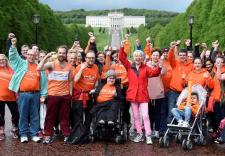Aggregated News

In February 2016, the UK's first licence to use CRISPR/Cas9 genome-editing techniques in human embryo research was granted to Dr Kathy Niakan of the Francis Crick Institute, London (see BioNews 837). The decision sparked further debate on this controversial topic (see BioNews 833 and 836).
While the technology allows for precise 'editing' of the human genome at the single nucleotide level – signalling its potential to eradicate inheritable diseases – the attendant social, ethical and legal implications of the technology are complex. While the licence granted to Dr Niakan is limited (transfer of the edited embryos for gestation is strictly prohibited under its terms), the decision to grant the license in the first place was interpreted by some as the first step towards permitting so-called 'genetically modified' babies, as well as a permanent modification of the human germline.
Important questions have been raised, however, in the dialogue surrounding the licence application, particularly around how we understand and define identity, difference, as well as the nature and quality of human life.
Continue reading on BioNews...
Image via Muscular Dystrophy UK



